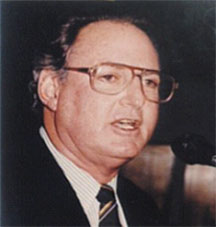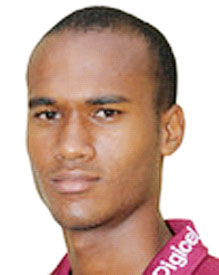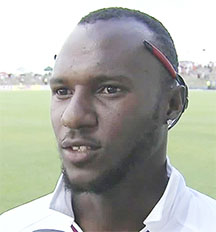By Tony Cozier
Given the well-documented background, it is tempting to dismiss West Indies’ triumph in the engrossing, fluctuating, nerve-wracking final Test over England as simply a one off against opponents suddenly overtaken by internal problems that mirror their own.
After two decades of steady decline, the West Indies remained entrenched at eighth in the official Test rankings entering the series; England were third. It was enough to prompt the skepticism.
The doubts have begun to perceptively fade over the past five weeks. This team’s spirit in repeatedly fighting against tough situations that have overwhelmed others in the recent past has given new hope of a revival of fortunes.
There were several theories on what triggered it.
The assertion by Colin Graves, the incoming head of the England and Wales Cricket Board (WICB), that West Indies were “a mediocre team” certainly made West Indian blood boil.
It did mine; I can imagine how it played in the West Indies’ dressing room. I wrote the day after that it was “denigrating disrespect”, enough to provoke retaliation on the field, much as Tony Greig’s infamous “grovel” taunt did to Clive Lloyd’s team in 1976.
New head coach Phil Simmons used it to telling effect; England’s captain Alistair Cook said that Graves had given the West Indies a pre-series pep talk.
At the same time, Simmons, for whom the result was an immediate fillip in his first series in charge, wisely warns against overblown expectations; his initial aim is for gradual improvement.
That one or other of the young brigade was to the fore in each daunting situation has afforded the series special significance.
When defeat seemed inevitable just after lunch on the final day of the first Test in Antigua, Jason Holder, 23 and in his fourth Test, held firm with captain Denesh Ramdin in a match-saving seventh wicket partnership of 105. His unbeaten 103 displayed a level-headed temperament and true batting ability, unsurprising to those who oversaw his development in his native Barbados.
His leadership qualities were evident in his difficult role as West Indies’ youngest captain in the ODIs in South Africa in January and the subsequent World Cup; his potential as a genuine all-rounder confirms general belief in his long-term future in West Indies cricket.
In the second match in Grenada, Holder’s 22-year-old club and Barbados teammate, the tenacious opener Kraigg Brathwaite, carried the West Indies into the final day at 202 for two with the real possibility of another draw after conceding a daunting first innings deficit of 165.
It required an exceptional spell of fast, accurate, swing bowling by England’s most prolific wicket-taker, James Anderson, to dislodge him for 116 next morning, his fourth Test hundred in less than a year, and open the way for victory.
Jamaican Jermaine Blackwood, 23, emerged as the third fledgling, a player with the distinctive flair on which the reputation of West Indies batting was forged.
Sir Viv Richards recognized a kindred spirit while manager of the West Indies ‘A’ team in Sri Lanka last October. Blackwood was an uncut diamond that just needed polishing, he said.
He stroked his maiden hundred, 112 unbeaten, in the first Test, his sixth, but the rough edges were evident in his liking for aerial shots and his sudden lapses into wild swings that twice cost him his wicket.
It was his Man of the Match batting in the Barbados victory that validated Richards’ judgment. On the second day, when a record 18 wickets tumbled, Blackwood’s uninhibited 85, from 88 balls with four sixes and 11 fours, was a stunning example of exceptional dynamism. The next best score among the 17 other batsmen was Shivnarine Chanderpaul’s 25.
On the final day, he entered at Chanderpaul’s dismissal six balls after lunch. At 80 for four, the West Indies were still 112 away from the 192 they required the level the series.
Daren Bravo, the obvious leader of the batting as Chanderpaul’s two decades of unwavering reliability near the end that unavoidably comes to all over-40s, had already settled with 15 off 57 balls.
Now Blackwood’s impetuosity arrived earlier than usual. Off his 18th ball, he charged at off-spinner Joe Root, aiming somewhere in the direction of the Bridgetown port half-mile away, and missed. Wicket-keeper Jos Buttler fluffed the stumping and, suitably alerted, Blackwood didn’t venture into cloud cuckoo land again. He and his left-handed partner carried the West Indies to the edge of their famous victory with a partnership of 108, Blackwood finishing the match off with a signature shot, hoisting Moeen Ali over mid-on to the boundary.
The new found self-belief was best manifested in the partnership’s rush to complete the assignment on the day. It began with 48 needed and paid no heed to the established tendency for late order collapses (the last four wickets went down for 19 in the first Test, the last seven for 13 and the last five for 15 in successive Tests in South Africa a few months earlier).
Now the sun was hot, the Englishmen were tired and frustrated and there for the taking. The two sprinted towards the line, arriving there by 5.35 pm, Bravo four runs short of seeing it through. The last 48 took just 40 balls.
It silenced the stunned Barmy Army and the hordes of other travelling England supporters in the stands and delighted the outnumbered locals who had waited too long for such a moment. They, like the players, are starting to believe again.
For all that, it is too far-fetched to imagine that the West Indies will rapidly return to their glory days of the 1980s on such evidence. They may never.
There are still too many things to be fixed, on the field and in the administration, before stability and progress can be achieved.
For the time being, Simmons and his associate coaches, Clive Lloyd and his selection panel, the players and, above all, the passionate West Indies public can savour the unexpected success of their “mediocre” team.
(Tony Cozier was part of BBC Radio’s Test Match Special commentary team throughout the series).









